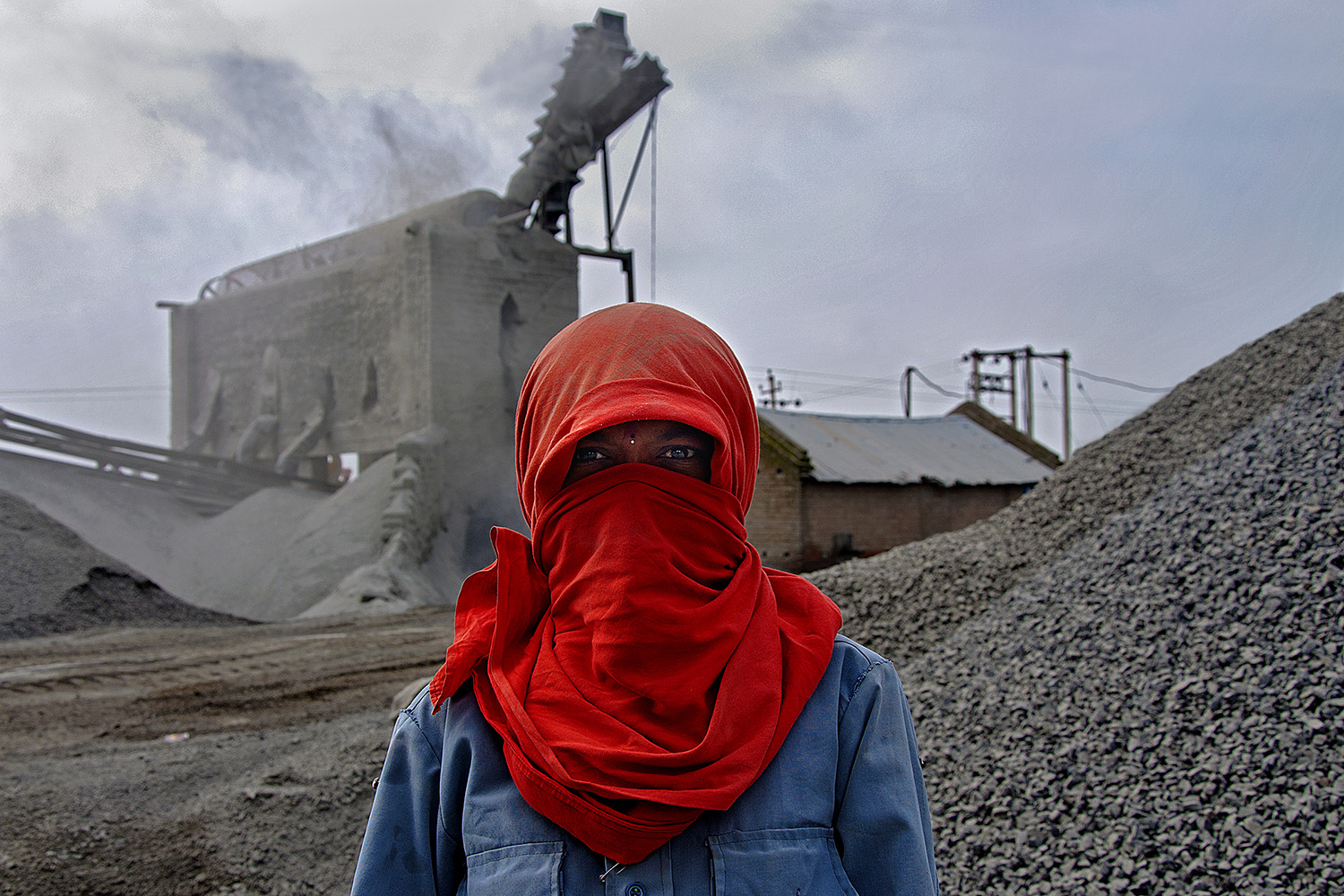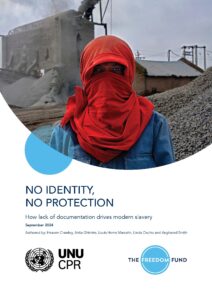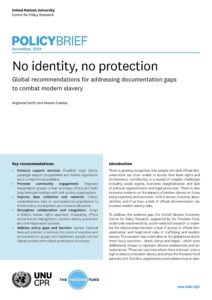A new report by the United Nations University Centre for Policy Research (UNU-CPR) and the Freedom Fund reveals the links between lacking official documentation and modern slavery. Without legal identity, people struggle to access basic services and are often driven into informal, dangerous and exploitative work.
As we approach International Identity Day on 16th September, it is crucial to address the heightened risk of modern slavery faced by people without identity documents. Government actions are urgently needed to address this global issue, including legislative reforms, community engagement and international cooperation.
Invisible lives
Despite Sustainable Development Goal 16.9 articulating a global commitment to achieving legal identity for all by 2030, one in nine people around the world (approximately 850 million) still lack official documentation (World Bank, 2023). Populations most affected include women, children, rural families and people with low literacy.
People who lack legal recognition by governments, such as migrants, stateless minorities and those affected by discriminatory nationality laws, constitute a large group without access to essential documents. Even when obtaining documentation is theoretically possible, practical challenges at the local level – such as bureaucratic inefficiencies, corruption, high costs and discrimination – can prevent access.
How the lack of documentation pushes individuals into modern slavery
The research draws on direct insights from over 170 experts, including UN actors, national officials, local service providers and people from slavery-affected communities in Brazil, Kenya and Nepal. Their testimonies underscore the profound challenges faced by individuals without official documents.
Without documentation, people are routinely denied essential services, such as healthcare, education and financial systems – perpetuating cycles of marginalisation, poverty and exploitation. When they fall into situations of abuse and modern slavery, they often remain trapped due to mistrust or fears of the authorities who are responsible for providing protection and support.
Professor Heaven Crawley, Senior Fellow at UNU-CPR and an author of the report, said: “Legal identity is more than a bureaucratic formality; it safeguards people against exploitation. Without legal identity, people remain invisible and excluded from basic rights and services. This lack of documentation not only denies them access to healthcare, education and formal employment but also strips away the legal protections needed to escape abuse.”
A call for action
Esther (not her real name), a Kenyan survivor of modern slavery emphasised: “When you don’t exist on paper, the system leaves us trapped. We are easy targets for those who want to exploit us because we have no voice, no identity, no way out.”
“We need support that puts our dignity and humanity first. Only then can we hope to break free from this cycle of exploitation and reclaim our lives.”
The No Identity, No Protection report calls for urgent government action, community engagement and international cooperation to address this issue. Legislative reforms and targeted support for marginalised communities are essential to remove barriers to obtaining documentation and protect individuals from exploitation.
Click below to access the full report:
Click below to access the policy brief:
Photo credit: © ILO/ Joydeep Mukherjee





